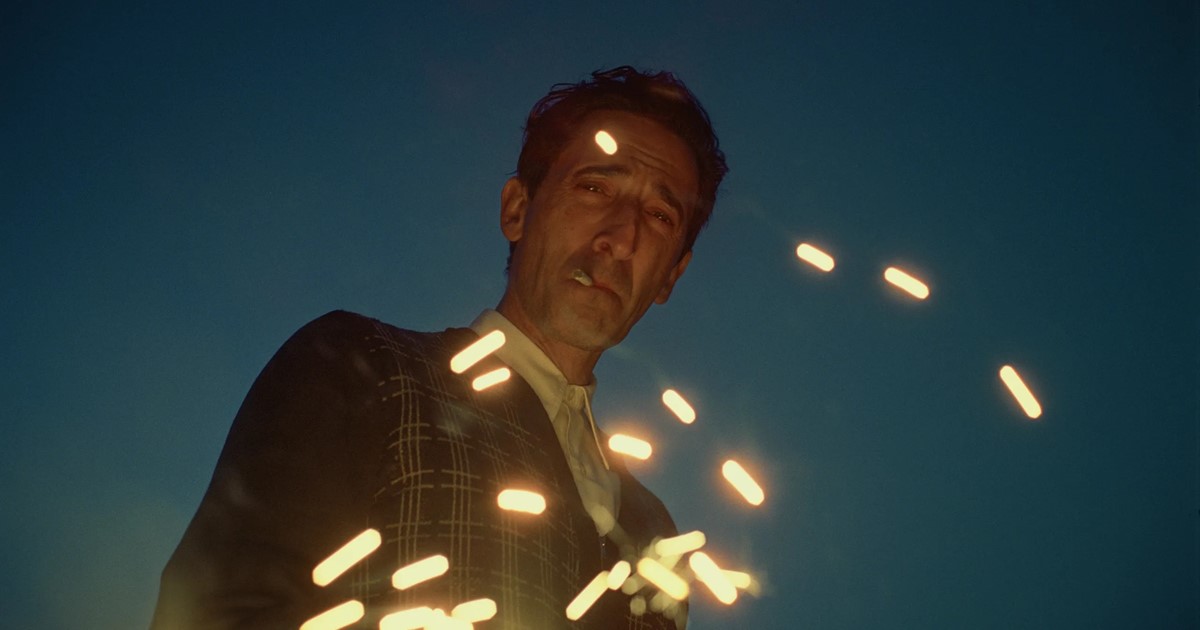
Brady Corbet's The Brutalist is a mammoth achievement that sits uncomfortably in your mind long after its credits roll. This three-and-a-half-hour meditation on art, trauma, and the impossible task of rebuilding a shattered life is less a traditional biopic and more a haunting character study that just happens to be about architecture.
From its opening moments, shot with an intimacy reminiscent of Son of Saul, we're thrust into the disorientated world of László Tóth (Adrien Brody), a Holocaust survivor seeking refuge in America. Brody delivers a masterfully restrained performance as a man hollowed out by unspeakable trauma, finding temporary solace in drugs and fleeting encounters, yet seemingly unmotivated by the traditional immigrant success story. The first half of the film builds tension through the fascinating dynamic between László and Harrison Van Buren (Guy Pearce), as the latter recognises an opportunity to weaponise art for social status - a theme that eerily echoes throughout the film's conclusion.
Corbet's use of VistaVision creates a stunning visual canvas that somehow never loses its human focus. The film's technical grandeur serves the story rather than overshadowing it, reminiscent of Anderson's The Master (rather than There Will Be Blood) in how it utilises scope to emphasise intimacy rather than spectacle. Each carefully composed frame feels like a silent witness to László's increasing alienation.
The film's shift in tone during its second half - where trauma becomes physically manifested through László's paralysed wife (Felicity Jones) and mute niece - might initially feel jarring, but it serves a deeper purpose. These abrupt stylistic changes mirror László's fractured experience, suggesting that no matter where he goes or what he builds, the echoes of genocide continue to reverberate through his life in different ways.
What's particularly striking is how the film resists easy categorisation or message-making. The final scene (slight spoilers in paragraph), set decades later, cleverly subverts any notion of neat resolution. As László's niece co-opts his artistic legacy for her own purposes, delivering platitudes that ring hollow against his lived experience, we're reminded that trauma doesn't simply heal with time or change of location. The sudden shift to 80s aesthetics and synthetic sounds in this finale only emphasises László's perpetual displacement - a man forever out of time and place.
The Brutalist is not an easy film to watch, nor should it be. It's a devastating portrayal of how the Holocaust's impact ripples through generations, manifesting in ways both subtle and overt. Like the architectural style it's named after, the film is imposing and uncompromising, yet deeply human in its foundations. It's a remarkable achievement that suggests Corbet has joined the ranks of contemporary American cinema's most ambitious voices.
Photo Gallery (click to view in full)